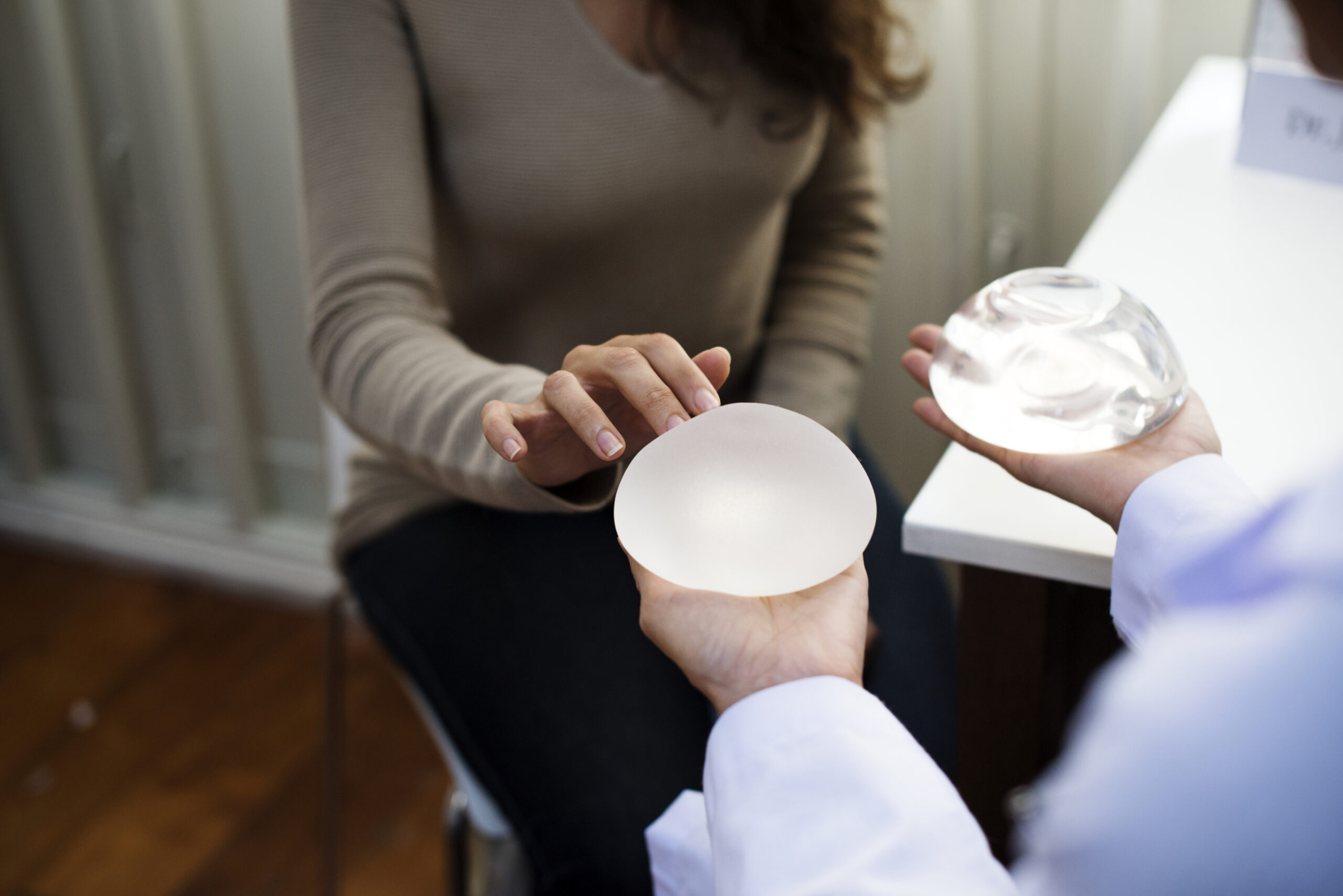
When I was 35, I heard the four words no woman wants to hear. Perched on an exam table, my top knot cocked to one side and an iced coffee in my hand, the doctor told me, “You have breast cancer.” Just like that, I went from being a busy mom of four to someone who would soon be wearing pink ribbons.
As the summer went on, I spent seven weeks attending various medical appointments and pre-op scans
One appointment was with a plastic surgeon to discuss my reconstruction options. I was set to have a mastectomy at the end of August. What’s interesting (and sad) is that I felt expected to have reconstruction. Going flat in my mid-30s was never discussed.
When I told my friends that I was choosing to get implants, joking I’d always be the hottest of all my friends, even when I was old, one of them piped up. She’d done breast implant research, and the silicone bags that would be sewn into my chest weren’t all they were cracked up to be.
She told me about breast implant illness, an unofficial disease in which a woman gets very ill from her breast implants. The constellation of symptoms can include hair loss, dry eyes, sexual dysfunction, new autoimmune diseases, hormonal fluctuations, anxiety and depression, brain fog, and many more.
I’m embarrassed to share that I blew my friend off
Surely, I’d be fine. After all, I already had cancer. Wasn’t that problematic enough? Implants would restore me to myself, giving me what cancer tried to take away.
I was rolled into the operating room with my natural breasts and came out with implants. From the minute I woke up from surgery, my shoulder blades felt like they were on fire. I assumed it was the positioning during surgery. Yet, the shoulder pain never went away: not with physical therapy, anti-inflammatory medication, yoga, or chiropractic care. An MRI revealed no issues.
The shoulder pain was bad enough
I had an infant daughter, and lugging her around only exasperated my pain. Unlike before my surgery, I could no longer lift weights without even more pain afterward. I couldn’t give anyone a proper hug — my implants were uncomfortable and heavy.
Though I was in constant pain, my implants looked absolutely perfect. They were a good size for my frame, and I was grateful that I had a one-and-done surgery — or so I thought.
About two years after getting implants, I began experiencing some rather alarming symptoms
One morning I woke up and looked down at my feet. My toes were a shade of purple. I also would start sentences and forget what I was saying. My eyes were so dry that I poured drops into them multiple times an hour.
My hair began to thin and refused to grow, but my thyroid lab work was normal. My joints were achy and sometimes swollen. I grew increasingly anxious, and I was always exhausted. During the last few months of my time with implants, I spent many days bedridden.
One morning, I woke up, opened my laptop, and looked up the symptoms of BII. A checklist popped up, and I couldn’t believe it. My friend was right. Breast implant illness is real, and I absolutely knew that I was experiencing it. I called my surgeon that day and scheduled an appointment. Within two weeks, I was on her surgery schedule to explant — that is, to have my implants and the surrounding capsules removed.
It's been one year since I explanted and most of my 29 symptoms have been completely resolved
I am completely happy with my flat chest. I can freely exercise and hug others again. I’m no longer a sick zombie; instead, I'm an active participant in my own life.
Implants seem to promise women a better, sexier, healthier, more complete life, but they ended up being my personal hell. I am not alone. More and more women are coming forward to tell their breast implant horror stories — all of us hoping that we will be heard and that other women will be saved from the illness that tried to destroy us.




